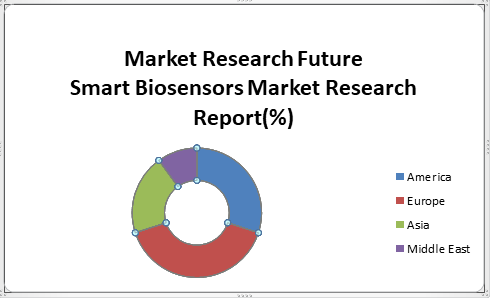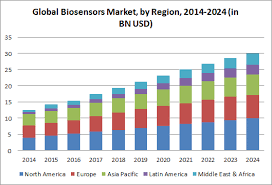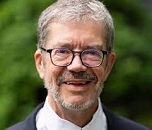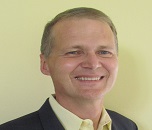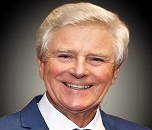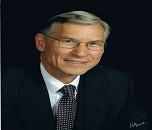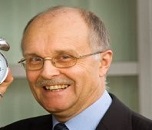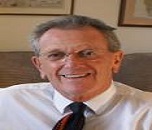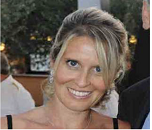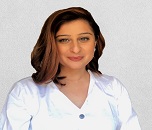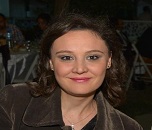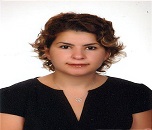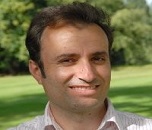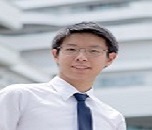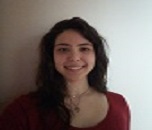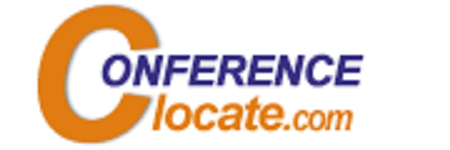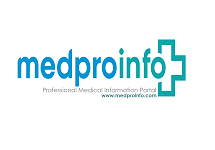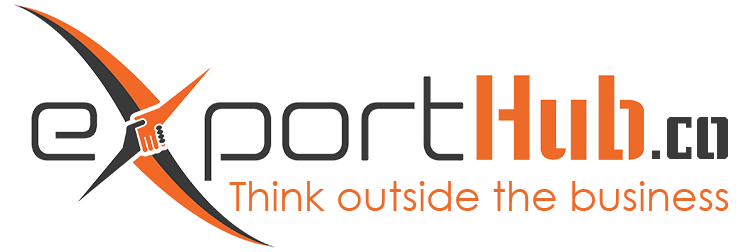
Biosensors 2022
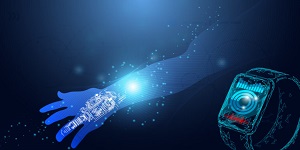
Theme: New Interventions in Biosensors Technologies
We are delighted to welcome you for the "6th International Conference on Biosensors and Bioelectronics" which is scheduled for May 20-21, 2022 in London, UK. This Conference focuses around the theme “New Interventions in Biosensors technologies” that aims to bring together leading university scientists, researchers, and university students to exchange and share their experiences and research results on all aspects of Biosensors and Bioelectronics. The conference program will consist of Plenary and Keynote speakers, multi-disciplinary workshops, active Invited speakers, and fresh contributed featured speakers from more than 35+ countries. In addition, a variety of poster presentations along with oral presentations as special sessions by budding scientists in the Young Researchers category as well as powerful synergistic panel discussions will be the major highlights of the scientific program.
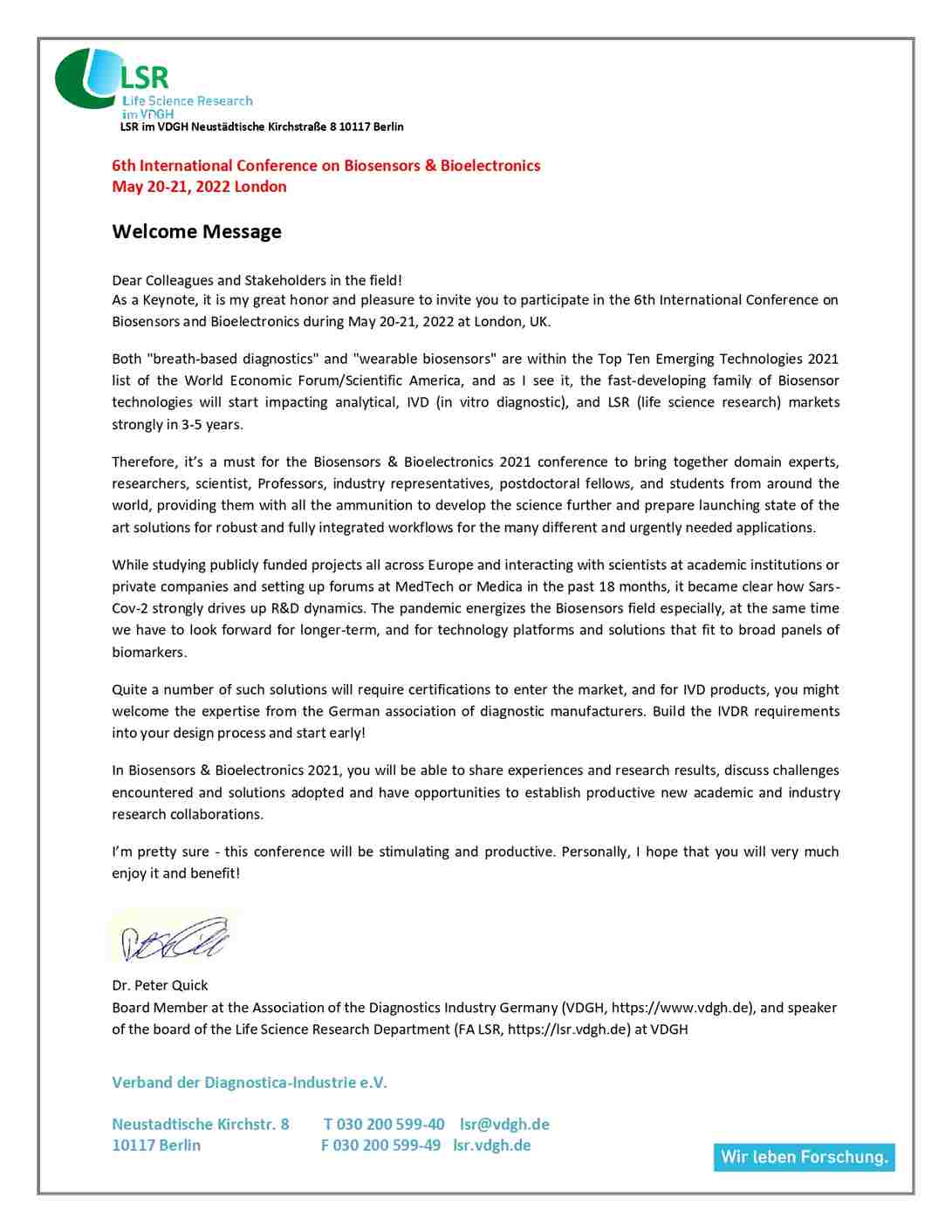
Session 1: Biosensors for Imaging
The Biosensor and Bioimaging facilitate the study of biological and pathological processes in living systems at the molecular level. A biosensor is a device used to detect the presence or concentration of a biological analyte, a biological structure, or a microorganism. Biosensors are found in bioelectronics, food and environmental monitoring, and biomedical applications to detect pathogens, food toxins, and disease biomarkers. Bioimaging is an optical form of biosensing used to create non-invasive, visual representations of biological processes in cells, tissues, and anatomy for more accurate diagnosis and treatment of diseases.
Imaging Sensors | Biosensors | Bioimaging | Biosensing | Healthcare Biosensors | Biosensors Conferences 2022| Biomedical Sensors | Bioelectronics | Biological Process | Biological Structures | Nano Sensors | Nano Biosensors | Biomedical Devices | Wearable technology | Sensing Technology | Bioinformatics | Biosensors Engineering
Session 2: Nanobiosensors & Nanosensors
Highly sensitive Nanosensors use electrical, optical and acoustic properties to improve the detection limits of analytes. The unique and exceptional properties of nanomaterials (large surface area/volume ratio, composition, charge, reactive sites, physical structure and potential) are exploited for detection. High sensitivity in recognizing analytes is achieved by pretreating samples, amplifying the signal and applying different transduction approaches. The use of nanotechnology for drug delivery in cancer treatment has raised high expectations. Additionally, the use of nanomaterials in sensors to extract and detect tumor-specific biomarkers, circulating tumor cells, or extracellular vesicles released by tumors promises to detect cancer much earlier and thus improve long-term survival. term of patients.
Nano Sensors | Nano Biosensors | Nano materials | Electrical Sensors | Bioelectronics | Biosensors | Biomedical | Healthcare Sensors | Detective Sensors | Sensor technology | Micro sensors | Biomedical Devices | Biomedical Technology | Medical Conferences 2022 | Biosensors Conference 2022
Session 3: Biosensing Technologies
Biosensor technologies are becoming more and more important for the advancement of human health. A biosensor recognizes a specific biological analyte and monitors its function within a biological medium; This technology has attracted the attention of many researchers around the world because of its importance in medical applications. Non-invasive, inexpensive, high-resolution portable biosensors can be used widely; However, there are still many challenges to overcome, including real-time in vivo monitoring of organ functionality in high-risk patients.
Biosensors Conference 2022 | Biosensors | Nano Sensors | Medical Sensors | Wearable sensors | Sensing Technologies | Biological Sensors | Bioinformatics | Healthcare Sensors | Biological Structures | Nano Sensors | Nano Biosensors | Biomedical Devices | Wearable technology
Session 4: Bioinformatics for healthcare engineering
Translational bioinformatics (TBI) involves the development of advanced storage, analysis, and computational methods to gather knowledge from large biomedical and genomic data in healthcare (proactive, predictive, preventive, and participatory). Translational bioinformatics applications in healthcare provide detailed insight into the concepts of TBI, biological and clinical databases, clinical informatics, and relevant real-world applications. Further illustrates recent advances, tools, techniques and applications of TBI in healthcare, including the potential of Internet of Things (IoT), toxin database, analysis of medical images and telemedicine applications, COVID19 CT image analysis, bioinformatics and viral diseases, and research related to COVID19.
Bioinformatics | Translational Bioinformatics | Biomedical Sensors | Biomedical Devices | Internet of things | Healthcare Sensors | Nano sensors | Sensing Technology | Bioelectronics | Biosciences | Biological information | Biomedical information | Biological Materials
Session 5: Lab-on-Chips and Nucleic Acid Sensors
A Lab-on-a-chip is a miniaturized device that integrates into a single chip one or several analyses, which are usually done in a laboratory; analyses such as DNA sequencing or biochemical detection. All living cells constantly experience and respond to mechanical stresses. The molecular networks that activate in cells in response to mechanical stimuli are yet not well-understood. Our limited knowledge stems partially from the lack of available tools that are capable of exerting controlled mechanical stress to individual cells and at the same time observing their responses at subcellular to molecular resolution.
Biosensors Conference 2022 | Biosensors | Biomedical devices | Biochemical Detection | Electrochemical Sensors | Bioelectronics | Biomedical Sensors | Biomedical Devices | Internet of things | Healthcare Sensors | Nano sensors | Sensing Technology.
Session 6: Photonic Sensor Technologies
Photonic sensing technologies based on spectroscopic, fibre optics, and LIDAR approaches are increasingly being used in the energy sector for a variety of measurement and monitoring applications in the wind, oil & gas and geothermal industries among others. Photonic sensors play a major role towards a sustainable, green future by helping control process more efficiently and reduce polluting emissions in a variety of applications in the exploration, generation, distribution, and conservation of energy. In this paper a review of the various applications of photonic sensors, their types and associated benefits will be made, along with socio-economic and benefits they provide.
Photonic Sensing | Healthcare Sensors | Nano sensors | Sensing Technology | Biosensors | Biomedical devices | Biochemical Detection | Electrochemical Sensors | Biological information | Biomedical information | Biological Materials
Session 7: Wearable Biosensors Technologies
A Wearable electronic device that can continuously and non-invasively monitor and transmit physiological information qualifies as a biosensor, such as a smart watch or athletic band that monitors heart rate. Advanced sensors can track targeted bio-markers resulting in better clinical understanding of disease. Wearable Biosensors typically rely on wireless sensors enclosed in bandages or patches or in items that can be worn. The data sets recorded using these systems are then processed to detect events predictive of possible worsening of the patient’s clinical situations and they are explored to access the impact of clinical interventions.
Wearable technology | Sensing Technology | Biomedical Technology | Medical Conferences 2022 | Biosensors Conference 2022 | Bioinformatics | Biosensors Engineering Nano Biosensors | Biomedical Devices | Wearable technology | Sensing Technology | Bioinformatics | Biosensors Engineering
Session 8: Biosensors in Healthcare
A typical Biosensor system combines a biocatalyst with a physicochemical transducer to produce an electrical signal that is amplified, processed, and displayed in a reading. According to this definition, very often an enzyme or other biological component is added to a transducer platform to detect and quantify the analytes. The term is often mistakenly used to refer to any sensor system that detects biological analytes, without using a biological agent for the actual detection; according to this definition, a pulse oximeter or ECG machine would also be considered a biosensor. Frost and Sullivan clearly distinguish these two types of sensors: the second is a medical sensor; the first, which uses an active biological agent for detection and quantification, is a biosensor.
Biosensors | Healthcare Biosensors | Biomedical devices | Biological information | Biomedical information | Sensing Technology | Wearable Sensors | Nano Sensors | Nano Biosensors | Biomedical Devices | Wearable Technology | Electrochemical Biosensors | Bioelectronics and Biosensors
Session 9: Commercialisation Session at Biosensors and Bioelectronics Conference:
Speakers:
- David Tolfree, EVP and ED MANCEF International (Chair) UK
- Dr Robert Mehalso, President Microtec Associates, US
- Dr Malcom Wilkinson, Director of Technology for Industry Ltd, UK
- Dr Doug Sparks, CTO Hanking Electronics and AVP for MANCEF Intern. US
The purpose of the session is to give attendees an appreciation of the challenges faced by academia, industry, and government in developing a commercialization pathway for micro- nano-based biosensor and bioelectronics products in preparation for entry to the global market. All the speakers are members of the Micro-nano and Emerging Technologies Commercialisation and Education Foundation, (MANCEF International) and experts in their respective fields. A summary talk will be given by the chair who will introduce the session and its speakers. Each speaker will give a 20-25 minute presentation and be a member of a follow up panel for Q&A session to involve other conference delegates. Any speaker who cannot attend the live event will participate online. The Chair will pre-consult with delegates or attendees for relevant questions prior to the session to ensure continuity.
Why to Attend?
- To transmit current issues and advances of your latest research.
- For Thought provoking speeches by Scientists, Professors, Ph.D.'s and Young Researchers.
- For Network development with Academic and Business Professionals
Benefits:
- Accepted Abstracts will be published in our Supporting journals & also in our proceedings Book
- Certificate Accredited by our Committee Member
- Handbook & Certificate (Soft Copy)
Market Research:
The global Biosensors market size was valued at USD 22.4 billion in 2020 and is expected to expand at a compound annual growth rate (CAGR) of 7.9% from 2021 to 2028. Biosensors, owing to their ability to assess health status, and disease onset and progression, are being used extensively in-home healthcare by patients, and hence, are expected to boost market growth over the forecast period. Furthermore, technological advancements, as well as various non-medical-based applications are expected to enhance the applicability of the market for Biosensors, thus promoting its growth.
Biosensors are analytical devices that incorporate biological-based sensing instruments, which are associated or integrated with physiochemical transducers. Biosensors aim to produce digital or electronic signals, which are proportional to chemical content and yield specific measurements. Myriad applications in the healthcare sector such as cholesterol testing, blood glucose monitoring, pregnancy testing, and drug discovery are expected to impact the market for biosensors, positively.
Competitive Landscape and Biosensors Market Share Analysis:
Biosensors Market competitive landscape provides details by competitor. Details included are company overview, company financials, revenue generated, market potential, investment in research and development, new market initiatives, global presence, production sites and facilities, production capacities, company strengths and weaknesses, product launch, product width and breadth, application dominance. The above data points provided are only related to the companies’ focus related to Biosensors Market.
The major players operating in the biosensors market report are Abbott Laboratories, AgaMatrix Holdings LLC, DowDupont Inc. (DuPont de Nemours, Inc.), F. Hoffmann-La Roche Ltd., General Electric (Biacore, Inc.), LifeScan, Inc., Medtronic Plc., Nova Biomedical, PHC Holdings Co., Ltd. (Ascensia Diabetes Care Holdings AG) and Siemens Healthcare and Johnsons & Johnson Services, Inc., among other domestic and global players. Market share data is available for Europe region. DBMR analysts understand competitive strengths and provide competitive analysis for each competitor separately.
Biosensors market, By Type
Biosensors market, By Product
Biosensors market, By Technology
- Electrochemical Biosensors
- Optical Biosensors
- Piezoelectric Biosensors
- Thermal Biosensors
- Nanomechanical Biosensors
Biosensors market, By Application
Biosensors market, By Region
Top institutes in Asia:
- Nanyang Technological University (NTU) Singapore
- National University of Singapore (NUS)
- The Hong Kong University of Science and Technology (HKUST)
- KAIST - Korea Advanced Institute of Science and Technology
- University of Hong Kong (HKU)
- Tsinghua University, China
- Fudan University, China
- City University of Hong Kong
- Peking University, China
- The Chinese University of Hong Kong (CUHK), Hong Kong
Top institutes in USA:
- Stanford University
- Harvard University
- California Institute of Technology (Caltech)
- University of Chicago
- Princeton University
- Cornell University
- Yale University
- Columbia University
- University of Pennsylvania
Top institutes in Europe:
- Massachusetts Institute of Technology (MIT), United States
- Stanford University, Stanford University
- University of California, Berkeley (UCB), United States
- University of Cambridge, United Kingdom
- National University of Singapore (NUS), Singapore
- California Institute of Technology (Caltech), United States
- Delft University of Technology, The Netherlands
- Imperial College London, United Kingdom
- Kyoto University, Japan
- University of Oxford, United Kingdom
Top institutes in UAE:
- Al Ghurair University (AGU)
- University of Dubai (UD)
- Zayed University
- Biotechnology University College Dubai (BUC)
- The Higher Colleges of Technology (HCT)
- American University in Dubai (AUD)
- University of Wollongong in Dubai (UOWD)
- British University in Dubai (BUiD)
- American University in the Emirates (AUE)
Target Audience:
Biosensors 2022 has extended global outreach efforts to invite speakers and attendees from many nations around the world, who have an opportunity to witness the results of quality research efforts provided by attending world renowned Scientists, PhD Graduate researchers, Professors from Electronics department, Organizations and institutes of Biosensors and Bioelectronics, Business delegates, CEO’s and R&D Heads from Industries, Professors and Students. Directors/Co-Directors of Research based companies across Europe and US who are investing in Biosensors and Bioelectronics.
Meetings Int. is a worldwide pioneer in delivering top notch gatherings, workshops and symposia in every significant field of science, innovation and medication worldwide receives 400,000+ online visitors with 1000+ sessions which confirm the outstanding pool of new users and visitors creating a platform to build your market place globally. Since its initiation, Meetings Int. has been related with national and global affiliations, organizations and elevated level people, committed to have world class meetings and occasions so its provide a big platform to show your product and advertise.
The explorers’ traffic is the benchmark for advertisement and the Biosensors website is continually dragged in observer over the world. As specify by the Google Analytics, in excess of 50,743 Researchers and industrialist are visiting to our conference sites. Bioelectronics and Biosensors help you to put the spotlight on your brand by advertising with more than 9 million+ readers worldwide and about 5 million+ hits every month on our site. We provide a good opportunity to boost your business on our platform. We offer a range of eye-catching advertising spaces and branding. Researchers from significant nations including United States, Japan, United Kingdom, India, France, Taiwan, and Germany visit our conference site. Subscribers and conference attendees can be your upcoming enthusiastic customers. We maintain high quality and ethical standards in event industry, which makes us unique and better than the rest.
Advertisement banner must be provided by the advertising company and must be in the jpg or jpeg format. The banner must be of high resolution and must not have copyright infringement.
For further queries, connect our Program Manager at biosensors@theexpertsmeet.com
You can also connect us via WhatsApp: +65 3158 1626
Young Scientist Awards at Biosensors and Bioelectronics 2022 for the best researches in Biosensors and Bioelectronics:
Meetings International is announcing Young Scientist Awards through 6th International Conference on Biosensors and Bioelectronics (Biosensors and Bioelectronics 2022) which is scheduled at London, UK during May 20-21, 2022. This Biosensors and Bioelectronics Conference focuses on “New Interventions in Biosensing Technologies”.
Biosensors and Bioelectronics 2022 and upcoming conferences will recognise participants who have significantly added value to the scientific community of environmental science and provide them outstanding Young Scientist Awards. The Young Scientist Award will provide a strong professional development opportunity for young researches by meeting experts to exchange and share their experiences at our international conferences.

Biosensors and Bioelectronics 2022 focuses mainly on Nano biosensors, Lab-on-a-chip and multiplexed sensors, Microfluidics, Commercial biosensors, DNA- and nucleic acid-based sensors, Photonic Sensor, Printed biosensors, Enzyme-based biosensors, and wearable biosensors. Biosensors and Bioelectronics conference operating committee is providing a platform for all the budding young researchers, young investigators, post-graduate/Master students, PhD. students and trainees to showcase their research and innovation.
Eligibility:
Young Scientists, faculty members, post-doctoral fellows, PhD scholars and bright Final Year MSc and M.Phil. Candidates. Persons from Scientific Industry can also participate.
Benefits:
- The Young Scientist Feature is a platform to promote young researchers in their respective area by giving them a chance to present their achievements and future perspectives.
- Acknowledgement as YRF Awardee
- Promotion on the conference website, Young Researcher Awards and certificates
- Link on the conference website
- Recognition on Meetings Int. Award Page
- Chances to coordinate with partners around the world
- Research work can be published in the relevant journal without any publication fee
Criteria:
- All presented abstracts will automatically be considered for the Award.
- All the presentation will be evaluated in the conference venue
- All the awards will be selected by the judges of the award category
- The winners of the Young Scientist Award will receive award certificate.
- The awards will be assessed as far as plan and format, intelligence, argumentation and approach, familiarity with past work, engaging quality, message and primary concerns, parity of content visuals, and by and large impression.
Guidelines:
- All submissions must be in English.
- The topic must fit into scientific sessions of the conference
- Each individual participant is allowed to submit maximum 2 papers
- Abstract must be submitted online as per the given abstract template
- Abstracts must be written in Times New Roman and font size will be 12
- Abstract must contain title, name, affiliation, country, speakers biography, recent photograph, image and reference
Conditions of Acceptance:
To receive the award, the awardee must submit the presentation for which the award is given, for publication at the website, along with author permission. Failure to submit the PPT and permission within the designated timeframe will result in forfeiture of award.
Award Announcements:
Official announcement of the recipients will occur after the completion of Biosensors and Bioelectronics Conference.
Past Conference Report:
Biosensors and Bioelectronics 2021
We gratefully thank all our incredible Speakers, Conference Attendees, Students, Media Partners and Associations for making Biosensors and Bioelectronics 2021 Online Conference the excellent!
The 5th International Conference on Biosensors and Bioelectronics, hosted by the Meetings International was converted into a virtual conference due to covid-19 and held during October 25, 2021 time zone (GMT+2). Benevolent reaction and energetic participation became received from the Organizing Committee Members in conjunction with Scientists, Researchers, Students and leaders from numerous fields of Biosensors and Bioelectronics, who made this event a grand fulfilment.
Meetings International expresses its gratitude to the convention Speaker includes:
- Meera Madhavan, Imperial College London, United Kingdom
- Sharmaine Reintar, Center for Biomarker Research in Medicine, Austria
- Ana Domingues, Department of Microsystems Engineering, Portugal
- Munezza Khan, National University of Sciences & Technology, Pakistan
- Mohamed Azize, Boston University, USA
- Anupam Mukherjee, General Silicones Co. Ltd., Hsinchu, Taiwan
- Yuvaraja Visagathilagar, RMIT University, Australia
- Maria Goreti Ferreira Sales, University of Coimbra, Portugal
- Federica Mariani, University of Bologna, Italy
- Zulfiqur Ali, Teesside University, UK
- Robert H. Batchelor, Nutromics Pty Ltd, Melbourne, Australia
- Valtencir Zucolotto, University of Sao Paulo, Brazil
- Katlin Rohtlaid, CY Cergy Paris University, France
- Arrate Jaureguibeitia, Biolan Microbiosensores, Spain
- Catarina Barbosa, Nova University of Lisbon, Portugal
- Aurel Ymeti, NanoBio Research Group & Nanoalmyona BV, Netherlands
- Larraitz Anorga Gomez, Biolan Health, Spain
- Domenica Tonelli, University of Bologna, Italy
- Vinayak Pachkawade,University of Liege, Belgium
- Nicholas Fuhr, Boston University, USA
- Alexander Stange, Boston University, USA
- Artur Jedrzak, Poznan University of Technology, Poland
- Camillie Railon, Ecole Polytechnique Higher educational institution in Palaiseau, France
- Minakshi Sharma, M.D. University, Rohtak, India
- Pinar Kara, Ege University, Turkey
- Doug Sparks, Purdue University, USA
- Marina Serin, Ege University, Turkey
- Ezgi Kivrak, Ege University, Turkey
- Peter Rolfe, Oxford BioHorizons Ltd, UK
- Maria Pace, Microsoft, USA
- Marie Clement, Linxen, France
- Miguel M Erenas, University of Granada, Spain
- Kevin Ton, Tripod Nano Technology Corporation, Taiwan
- Anupam Mukherjee, General Silicones Co.Ltd., Taiwan
- Jean-Christophe P. Gabriel, Nanyang Technological University, Singapore
- Mohammed Riyaz Ahmed, Reva University, India
- Ajay Agarwal, CSIR-Central Electronics Engineering Research Institute, India
Meetings International Group offers it’s heartfelt our eminent personalities who supported the conference by facilitating the discussion forums. Meetings International also took privilege to felicitate the Keynote Speakers, Organizing Committee Members, Chairs and Sponsors who supported this event.
With the success of Biosensors and Bioelectronics 2021, Meetings International is proud to announce the “6th International Conference on Biosensors and Bioelectronics” to be held during May 20-21, 2022 at London, UK.
See you soon at London, UK!
Conclusion:
Biosensors 2021 are able to sense and respond to environment around them. They have the potential to improve existing technology and add new functionality to products. They have a capability to work in multifunctional way. Thus we conclude that there is an important role of Biosensors and Bioelectronics in our life.
Meetings International recognizes the commitment and amazing work in all fields of academics and research. By recognizing their contribution; Meetings International inspires and motivates scholars, researchers and academics by awarding the Best YRF and Researcher Awards in all academic disciplines and categories along with other specific awards. These awards include prestigious Certificate of Award with other gifts.
Keynote Speaker Awards:
Biosensors and Bioelectronics 2022 chooses a relevant keynote speaker to speak at conference. All accepted keynote speakers proposals will be considered for the Best Keynote Speaker Awards. The committee will select a number of candidates for the award among the accepted proposals. The winner will be selected at the conference, taking into consideration both the proposal and the presentation. Best keynote speaker can help to boost motivation, change their way of thinking and make audience energized and inspired. For Keynote the person should be eminent or highly affiliated like Dean, Professor, HOD, Chair persons, CEO, CFO, MD etc. Selection of the Best Keynote Speaker will be made on the basis of the participant contribution and years of experience in the respective research field. Each submission will be accepted based on the quality of abstract and conference theme. Irrelevant submissions will be rejected .The acceptance and rejection of abstract submissions will be selected by the Organizing committee. All submissions will go through a quality checking. Final approved abstract will consider for Keynote awards.

Outstanding Speaker Awards:
Biosensors and Bioelectronics 2022 believes in recognising our best speaker. The best speaker is selected as per their research abstract before the conference. All winners are determined by a selection panel. This award is designed to recognise and identify outstanding speakers who have achieved recent extraordinary eminence and success. Being an outstanding speaker means to deliver a message that engages an audience. The outstanding speaker awards will also be given on the basis of organization and professionalism of presentation, communication skills of the presenter and appropriate use of time. Each session will be evaluated separately. For speaker the person should be Professor, Researcher, Scientist, and Entrepreneur etc. Selection of the Speaker will be made on the basis of the participant contribution in the respective research field. Each submission will be accepted based on the quality of abstract and conference sessions. Irrelevant submissions will be rejected. The acceptance and rejection of abstract submissions will be selected by the Organizing committee. All submissions will go through a procedure of quality checking by our team. Final approved abstract will consider for outstanding speaker award.

OCM Award:
The organising committee can avail in the process of managing the multiple tasks that need to be done. Committee members, having a good erudition of the event management plan, are well placed to provide training, supervision and assistance to other personnel involved in the organisation of the event. Meetings International will honour as a best OCM the individual who has demonstrated their support and guidance throughout the conference. OCM should be eminent or highly affiliated like Dean, Professor, HOD, Chair persons, CEO, CFO, MD etc. Selection of the best OCM will be made on the basis of the participant contribution and years of experience in the respective research field. They must have good number of research papers and citations and should be more number of years of experience.

Outstanding Masters/Ph.D/Post. Doc Thesis work presentation Award:
Biosensors and Bioelectronics 2022 gives the opportunity to young researchers in the different field of conferences. The best participants are selected as per their research abstract before the conference. If you are a young and dynamic researcher than you can join our conferences to explore new idea and research. A panel of judges will select the best YRF. Best YRF will be recognized publicly at the end of the conference. The Best YRF Awards will be given to the most outstanding presentation presented by a participant who has registered under the student category. Undergraduates, Master students, and Ph.D. students will be considered under this category. Selection of the YRF will be made on the basis of the participant contribution in the respective research field each submission will be accepted based on the sessions of the conference. Irrelevant submissions will be rejected. The acceptance and rejection of abstract submissions will be selected by the committee. All submissions will go through a quality checking. Final approved abstract will consider for YRF award.
Best Poster Awards:
To be eligible for the awards Students interested in having their posters considered for the Biosensors and Bioelectronics 2021 conference, they must have submitted an abstract of their poster to the conference. The award committee will consider all posters that relate to the study of public opinion, whether they focus on theory, substantive findings, research methods, and/or statistical techniques used in such research. All posters will automatically be considered for the Poster Awards and the posters will take place in the conference venue and Poster Judges will select the best posters. The winners will be formally announced during the closing ceremony. The winners will receive a certificate award.

Guidelines for Poster:
- Poster Size: Each poster should be approximately 1x1 M long. The title, contents and the author’s information should be clearly visible from a distance of 1-2 feet.
- Content: Use fonts such as Arial/Times New Roman in a reasonable font size that should be easy to read.
- The spacing between the lines should also be taken into consideration.
- A very simple format should be used representing all the details about the research carried by the author.
- Long narrated paragraphs should be avoided.
- Short phrases and bulleted points should be used in the poster to present the main highlights of the work done.
Guidelines for Abstract:
- Only abstracts submitted in English will be reviewed.
- Abstracts must not exceed 500 words (excluding the title, author affiliation and biography)
- Abstract should follow the instructions on the following template (Abstract Template).
- Do not include references or figures in the keynote abstract.
- Abstract should contain biography, photograph and short description about research
- Abstract must contain presenter name, affiliation and country
- Abstract title and abstract content should be relevant.
- Biosensors for Imaging
- Nanobiosensors & Nanosensors
- Biosensing Technologies
- Bioinformatics for healthcare engineering
- Lab-on-Chips and Nucleic Acid Sensors
- Photonic Sensor Technologies
- Wearable Biosensors Technologies
- Biosensors in Healthcare
- Commercialisation Session at Biosensors and Bioelectronics Conference
- Advanced Biomedical Research and Innovation
- Journal of Electrical Engineering and Electronic Technology
- Journal of Biochemical Engineering & Bioprocess Technology.
- Biomaterials and Medical Applications
- Journal of Nanomaterials & Molecular Nanotechnology
3 Organizing Committee Members
14 Renowned Speakers
Peter Quick
LSR department VDGH
Germany
Doug Sparks
CTO
Hanking Electronics
United States of America
David Tolfree
MANCEF VP Europe/ Africa & Executive Director
United Kingdom
Dr. Robert Mehalso
President, Microtec Associates
United States of America
Dr. John Malcolm Wilkinson
Sheffield University
United Kingdom
Dr. Alan Smith
AZ-TECH
United Kingdom
Prof. Riccarda Antiochia
Sapienza University of Rome
Italy
Apurva Bhasin
University of California Irvine
United States of America
Pinar Kara
Ege University
Turkey
Pinar Camurlu
Akdeniz University
Turkey
Aurel Ymeti
Saxion University of Applied Sciences
Netherlands
JAKKRAPATR O.BAIYOKVICHIT
National Taipei University of Technology
Taiwan
Dr. Robert Bachelor
Nutronomics
Australia
Catarina Barbosa
Universidade NOVA de Lisboa
Portugal

